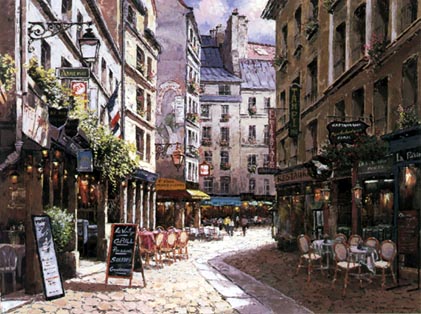A few months ago I lost a journal of mine. This is a journal
I carry around with me, almost like an anthropologist might carry around a
notebook to take notes in; that is what I used this book for. See, most
people think if you use the word 'journal' you are writing down what you've
been doing throughout the day, or how you feel throughout the day. Some
of those things were included in my journal, but more often this book contained
things I saw, things I learned, things I thought about that I wanted to remember.
I've been telling
myself I'll find this journal of mine because there are some things in it that
I sorely miss and regret losing. One thing I miss that was in this
notebook were 5-10 pages (small pages, given) of notes I took on a tour my
family and I took of Downtown LA's movie theatres. It’s a tour put on by
volunteers, organized by USC on different parts of Downtown LA. My family
and I had been on one of these tours before, but when a friend was visiting LA
with me, I asked if we could go on another tour, and my father decided on the
theatres tour.
I fell in love.
To the extent that I just wanted to study Los Angeles history, film
history, and historical theatres around the Los Angeles area. I love
movies; I love the theatres; I love going to the theatres to watch movies, and
I love history. It seemed perfect. We walked around Los Angeles for
over two hours learning about the different theatres, some abandoned, some
altered into storefronts for electronics stores, or jewelry stores, others
altered into churches, and some used for special occasions but no longer used
on a day-to-day basis. I thought it was all fascinating. I took so
many notes. I drew pictures of the things I saw, and drew maps of the
streets I turned onto. I wrote about what these places were, I wrote
about what they are now, and I wrote about the stories told about these places.
Los Angeles. Movies. Gosh, I miss those notes and I pray that
when God resurrects me, he will return all lost items to me.
Have you seen
Psyche? Remember that episode where they know a man who can find any lost
object? I need him. I hope this book turns up.
But I think these
notes I took, and this tour I took of downtown Los Angeles helped me realize
how much I love cities. See, I've always known I loved cities, but I
always thought that because we as Latter-day Saints are such
"Romantics" (notice the capital R) we attach this romantic notion to
nature. I think I like nature, but I don't share the feeling that without
nature I'd die. I don't need wide open spaces in the literal sense,
because I get it in the figurative sense when you're in the middle of a city
crowded with people and yet alone. Its a wonderful feeling. And I
don't mind being anonymous. I also don't mind being around so many people
because we share a camaraderie that I love.
It is the love I
have for Los Angeles, and every major city I've been in--San Francisco,
Seattle, Boston, London, Paris--that led me to this decision to go the route of
Urban Studies within my field study. I love African American history and
I want to learn about it, and jazz, and I want to read about the African
American expatriates, but I realized that I want to know about their experience
in the city, and I want to
know about the culture of the city.
The people are important to me, but in the city the culture isn't held by
the people--it's held by the city itself. It's carried in every brick or
cobblestone, every layer of paint, and every broken tile. The place holds
something different.
The people in Los
Angeles have changed considerably in the last fifty years, but the place still
has a power to it that you can feel when you wander the streets, and it's been
there longer than the people who inhabit the streets now. I think that's
important, that people bring culture, but sometimes place
is embedded with culture and it's okay to study that too. I
want to take that approach with Paris as I discover Paris and the culture of
Paris. It is this idea that the place itself has embedded within it a culture
that allows me and mandates that I go to the city to truly understand what
these African American expatriate musicians felt and went through upon moving
to Paris and working in Paris and making a home for themselves in a city with a
culture that predated them, or anyone around them.
This makes going
to Paris necessary. This makes the location integral and I've been
struggling with expressing that or explaining or justifying those ideas even to
myself. But I also think it's an important shift in my field study and
realizing why I'm going. It's not about these African American
expatriates necessarily, but the city and learning how to think about the city,
read about the city, and talk about the city in a way that expresses this
theory that the city is a living organism that contains more than just the
people living within it. But the city is a big place, and one way to
study the city is to study peoples' interactions with the city and that's where
the American expatriates come in. To know where they worked gives me a
place to start. To know who they were and their experiences gives me a
comparison. To listen and read their creations gives me tangible evidence
of their experience which I couldn't have just by walking through the city alone.
I love these
ideas, and I also love that this applies not only to my field study and to
Paris but to the city I came from which started this whole thing. It
gives a lot more interest to all the places I'll be going and things I'll be
doing. I need to rewrite my proposal now. Excuse me.













